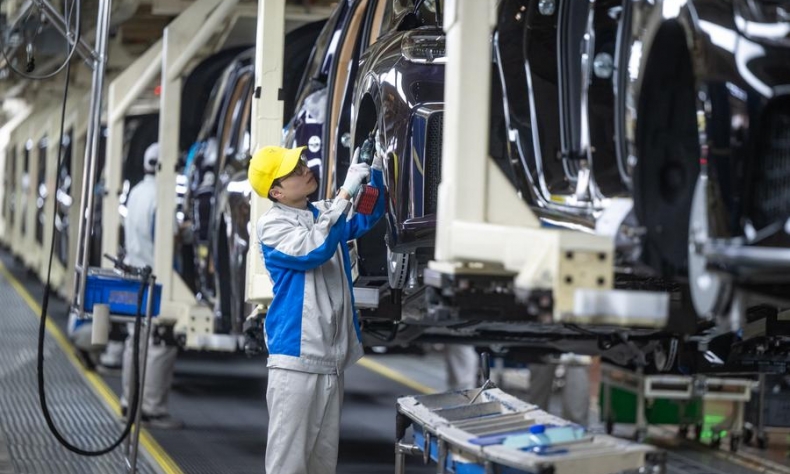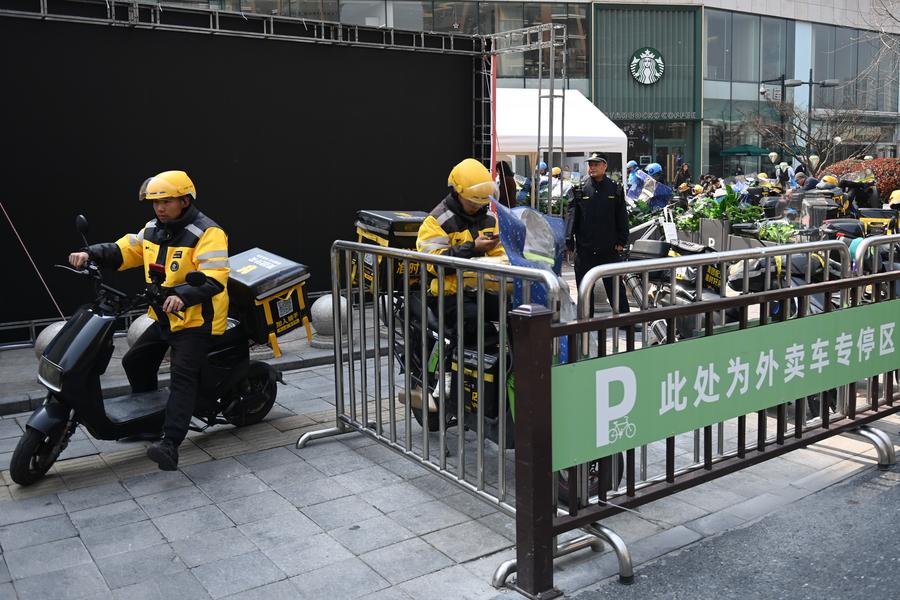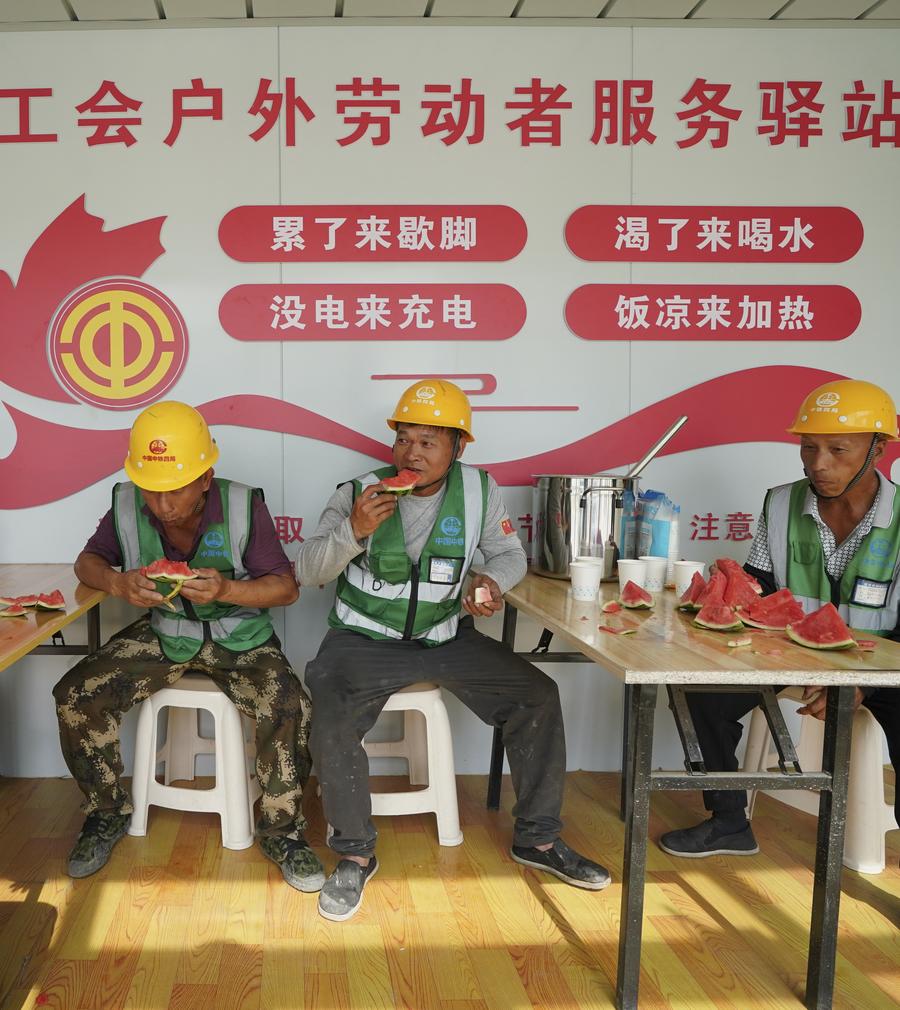Responsive Representation

As a result of the deepening of socialism with Chinese characteristics, tangible improvements have been achieved in workplaces throughout the nation.
Over the past 40 years, the development of market socialism has significantly expanded the size of China’s urban working class as rural workers have relocated to urban centers. The rapid expansion of China’s urban working class has been instrumental in shaping the nation’s economy, which is both dedicated to meaningful technological innovation and devoted to modernization to improve China’s standard of living. The expansion of market socialism has posed considerable challenges to ensure China’s working class maintains its preeminent position. The All-China Federation of Trade Unions (ACFTU) has been at the leading edge of defending and improving the conditions of the working class during the transformation of the economy. Ever since the opening of the market economy in 1978, the federation has effectively applied itself to continuously adapt to the realities of China’s modernization and technological development through proactively responding to anticipated changes in the workplace and responding to working class interests. Economic modernization compels the ACFTU to develop the capacity to serve a far more diverse working class in manufacturing, construction, social services and, since the 2010s, laborers in the digital economy.
My recent research shows the ACFTU has successfully mobilized the Chinese working class in all sectors of the economy—from industrial enterprises to the platform economy—a formidable accomplishment for any trade union federation and a colossal endeavor for the world’s largest trade union. In 2024, an estimated 400 million workers were members of the ACFTU. Remarkably, the ACFTU represents more workers than the total of all trade unions in the world as China seeks to advance the interests of all workers. To accommodate unionization, Chinese labor law grants workers a legal right to join and form their own unions. Public and private employers must recognize and bargain with ACFTU-affiliated unions to negotiate higher wages and ensure safe working conditions.
ILO endorsement
The International Labor Organization (ILO) of the United Nations has applauded the ACFTU’s monumental achievements, particularly in its representation of workers in the digital economy.

In the last decade, its organization of workers in the rapidly expanding digital economy and new forms of employment has been unmatched by any trade union in the world. Notably, the ACFTU is organizing digital workers employed in the burgeoning logistics industries, including trucking, ride hailing and delivery, comprising approximately 200 million workers. Digital platform workers face distinct challenges, including regulating their hours of work and meeting wage standards. In China, most digital workers are employed for identifiable technology firms in the ride hailing and delivery sectors and beyond. The ACFTU is organizing workers who are independent contractors to delivery platforms by ensuring minimum wage standards are maintained. The ACFTU has had extraordinary success in doing so, mobilizing 24 percent of these workers into the union, an achievement that sets it apart from any union in the world. No union in any country has organized even 1 percent of workers in the platform economy due to fierce employer resistance to recognizing digital laborers as employees, a disincentive for trade unions to organize workers in the industry. At best, workers in the UK and the U.S. have formed independent associations with scarce support from established unions.
Accordingly, due to its ongoing success organizing workers in the digital economy, the ACFTU is providing organizational assistance to unions outside China in protecting the rights of platform workers.
Digital vanguard
China has been making efforts to develop the platform economy and protect platform workers’ rights and interests. With the world’s largest population and a quarter of the global workforce, China stands at the forefront of technological innovation and globalization. Understanding the regulation of digital labor platforms in China will contribute toward better seeing the dynamic of these new forms of work and to supporting mutual learning between countries. A subsequent ILO report in June 2024 recognized China’s leadership in organizing workers employed in the platform economy and said it will guide labor representatives in the European Union on developing social protection to vulnerable workers in the digital economy.
The meteoric expansion of the digital economy is unparalleled worldwide and has captured a large share of new workers in China. New generations of labor enter jobs due to demand for their work now and in the future. The initial stages of labor relations are typically fraught with controversy in all societies. Low pay and poor working conditions are often widespread, and workers respond to ameliorate their abysmal conditions. Most but not all Western scholars and NGOs deliberately neglect the ACFTU’s seminal achievements and are engaging in sloppy and dishonest labor research seeking to disparage it. This notwithstanding, the ACFTU continues its indefatigable efforts that have been expanded under President Xi Jinping to recognize, address and change policy for workers in the new economy.

While the exceptional achievements of the ACFTU in organizing and protecting new economy workers have gone unnoticed by labor scholars in the West, they are recognized and highly regarded worldwide as an archetype of successful organizing. Western NGOs and labor researchers disregard or criticize the ACFTU’s sustained success organizing new economy workers, and consider its improvement of wages and conditions an anomaly.
Perversion of Western NGOs
In spite of the ACFTU’s remarkable success in organizing workers, Western NGOs and critics share a disdain for Chinese socialism, driven by a bourgeois ideology intent on subordinating labor to capital. But despite the fabrications, which are motivated by an aversion to socialism, recent surveys among workers reveal the ACFTU has rapidly responded as soon as poor working conditions, wage abuse, nonpayment of social security are reported in the private sector by rectifying the claims through mediation and arbitration courts. If the workers are unorganized, the ACFTU mobilizes them into unions to ensure employers comply with wage rates, safety standards and pensions. In contrast to Western advanced capitalist countries, where the capitalist class rules the economy, the Chinese working class is the leading mass social force.
As a result of the deepening of socialism with Chinese characteristics, tangible improvements have been achieved in workplaces throughout the nation. The ACFTU is committed to diligently responding to the changing material conditions that may alter labor wages and conditions and responding to challenges by private sector employers, inevitable in any state, but far less prevalent in China. As material conditions and labor relations transform, national labor law and local trade union practices have dramatically improved labor conditions in response to technological innovation. Consequently, the ACFTU encourages local democratic engagement in workplaces throughout industrial sectors, provinces and, on the local level through neighborhood, sub-district and district unions to increase wages and improve conditions, including providing social security to workers. In addition, digital and new economy employers must provide shelter to workers when temperatures rise.
The author is chair of the New York Peace Council, a professor of political science at Brooklyn College of the City University of New York in the United States, and editor in chief of the Journal of Labor and Society, a quarterly peer-reviewed social science publication founded in 1997.
 Facebook
Facebook
 Twitter
Twitter
 Linkedin
Linkedin
 Google +
Google +










